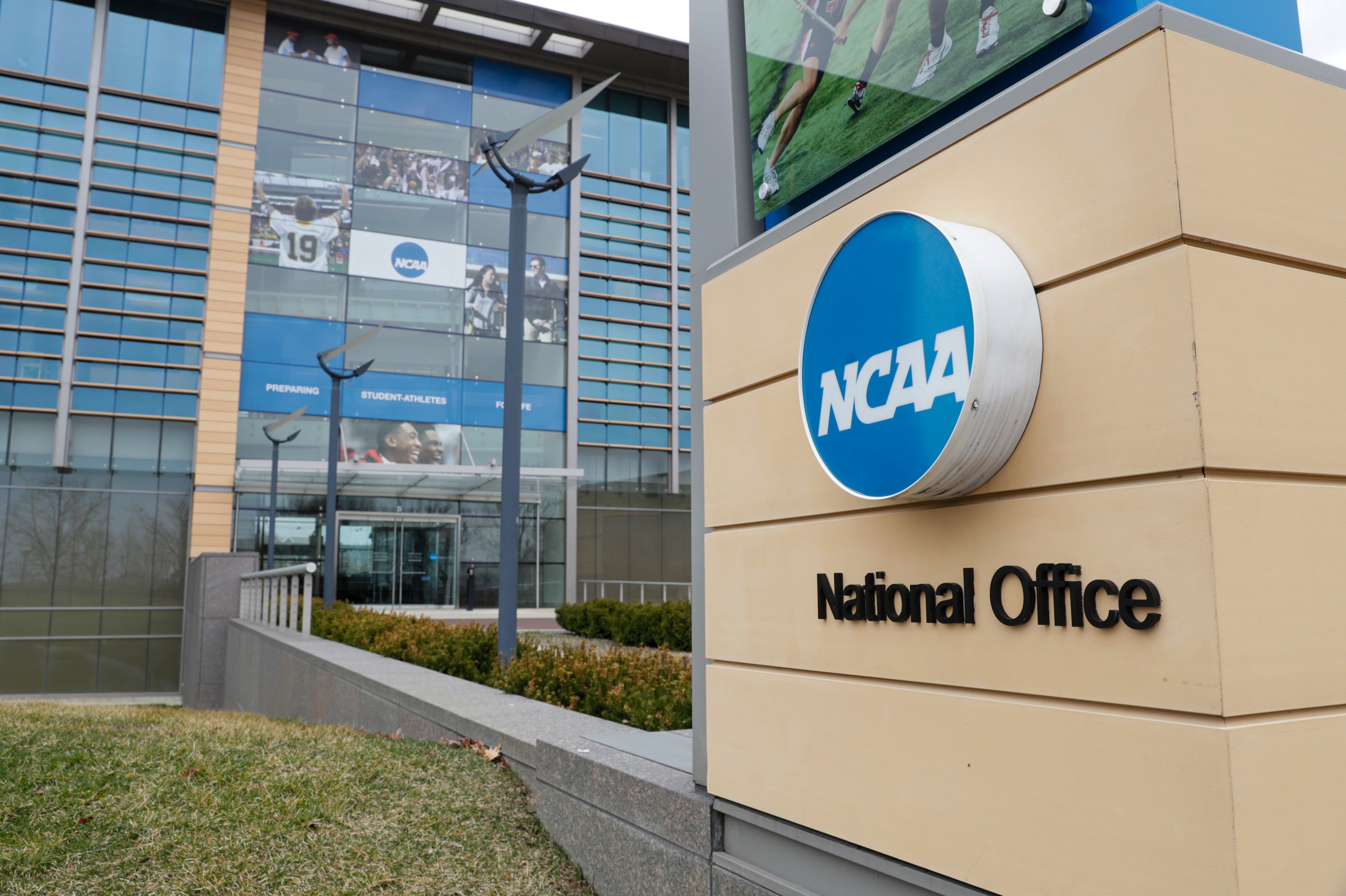Objections flow in on NCAA settlement over 'unnecessarily harsh' impact of roster limits
Most of the objections posted so far to the lawsuit settlement set to alter the college-sports model concerned the impact roster limits will have on players in so-called “Olympic sports,” some of whom have already been cut from their teams

Your support helps us to tell the story
From reproductive rights to climate change to Big Tech, The Independent is on the ground when the story is developing. Whether it's investigating the financials of Elon Musk's pro-Trump PAC or producing our latest documentary, 'The A Word', which shines a light on the American women fighting for reproductive rights, we know how important it is to parse out the facts from the messaging.
At such a critical moment in US history, we need reporters on the ground. Your donation allows us to keep sending journalists to speak to both sides of the story.
The Independent is trusted by Americans across the entire political spectrum. And unlike many other quality news outlets, we choose not to lock Americans out of our reporting and analysis with paywalls. We believe quality journalism should be available to everyone, paid for by those who can afford it.
Your support makes all the difference.Most of the objections posted Wednesday to the lawsuit settlement set to alter the college-sports model concerned the impact roster limits will have on players in so-called “Olympic sports,” some of whom have already been cut from their teams.
As part of the settlement, the NCAA proposed limits on rosters that would be imposed for schools that choose to adhere to the terms of the deal. While the new roster limits expand the number of scholarships schools can provide, estimates are they could lead to the loss of 10,000 or more spots in “non-revenue," or Olympic sports, across the NCAA because the limits will restrict the number of walk-ons allowed on the teams.
“Our daughter ... has been informed — in a manner both unceremonious and unnecessarily harsh — that she will no longer have a roster spot for the 2025-2026 season,” Megan and Kevin Lang wrote about their daughter being cut from the Ohio University soccer program.
“This outcome starkly contrasts with the NCAA's mission statement to provide ‘a world-class athletics and academic experience,’” for athletes, the Langs wrote.
The deadline is Friday for people to file objections to the House settlement. A hearing in federal court is set for April 7, where Judge Claudia Wilken will decide whether to issue final approval to the terms.
The settlement will allow schools, in a revolutionary twist for college sports, to directly pay up to $20.5 million to athletes for their name, image and likeness. Schools that choose to do so will also be subject to the roster limits.
A handful of swimmers — whose sport is heavy with walk-ons and is expected to endure heavy roster losses — wrote to Wilken. One parent said her son, William Woodall, had been cut from Utah's team.
“William would have chosen a different education path” had he not chosen to swim at Utah, wrote his mother, De Ann Woodall-Watson.
The Intercollegiate Tennis Association, which oversees college tennis, submitted a letter asking decision-makers to “fully vet the potential unintended consequences to, and not simply the affirmative intentions surrounding, this large number of non-football and non-basketball sports and all of their constituents.”
Jeffrey Kessler, the plaintiff attorney who has helped shape the settlement, said he did not anticipate Wednesday's handful of objections to block final approval. He said people who feel they've been harmed by the roster limits still have legal recourse.
“The settlement does not require the NCAA to impose roster limits," Kessler said. “It just says it will not stop the NCAA from imposing roster limits. It has nothing to do with our settlement. They should complain to the NCAA.”
The NCAA says the roster limits are part of a broader strategy that includes schools offering core guarantees — better health care and other benefits, along with increased scholarship opportunities and protections for athletes who receive them.
One other objection came from a soccer player, Jelena Sever, who played at Wisconsin-Milwaukee before NIL payments were allowed. She said she would only receive about $280 in backpay from the settlement despite the exposure she got in 2021 when she scored a goal off the opening kickoff.
Another came from a walk-on football player at Minnesota who objected to backpay only going to players who earned scholarships.
Kessler said experts developed a formula to determine how to pay out the $2.8 million, and that all athletes have the right to opt out of the class-action lawsuit and pursue their own legal action.
“You can't just give more money to someone at the expense of another because they want more money," Kessler said. "The lawyers didn't make this decision. We went to experts and said ‘How would the market allocate this money?’”
___
Get poll alerts and updates on the AP Top 25 throughout the season. Sign up here. AP college football: https://apnews.com/hub/ap-top-25-college-football-poll and https://apnews.com/hub/college-football